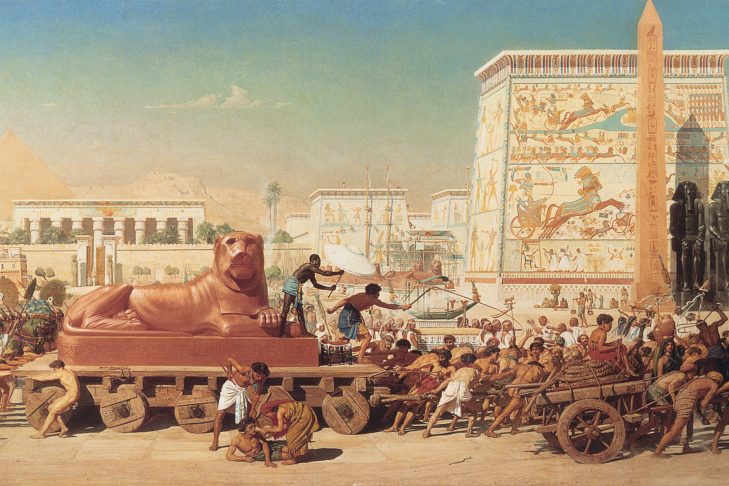The Passover story is one of the most powerful Jewish stories ever told, one that has unified and driven our people for centuries. And yet, this story raises even more questions than it answers. This year, I offer two critically important questions that you may hear at your seder:
Did the Exodus really happen?
And, why be Jewish at all?
Below I suggest some resources and thoughts on how you might answer these questions.
Was there really an Exodus?
Joshua Berman’s essay in Mosaic magazine sifts through fascinating research to provide some answers.
“When Jews around the world gather on the night of Passover to celebrate the exodus and liberation from Egyptian oppression, they can speak the words of the Haggadah, ‘We were slaves to a pharaoh in Egypt,’ with confidence and integrity, without recourse to an enormous leap of faith and with no need to construe those words as mere metaphor. A plausible reading of the evidence is on their side.”
Why be Jewish?
Faith and optimism are in short supply these days, but if we are to succeed, we must believe deeply in our work. And we have good reason to believe in our work, in our people, in our culture, in our values and in ourselves.
So at the seder when our children ask why we celebrate or why be Jewish at all, you must have serious answers for serious questions:
- In a time that lacks vision and prophecy and that yearns for meaning, we are carrying an ancient faith in an ancient God so that our children and grandchildren will have spiritual options to fill their lives with light and joy.
- In a time of greed and selfishness, we’re part of an old—a very old—tradition of caring for strangers—love of the poor and oppressed—and responsibility for widows and orphans, the elderly and disabled.
- In a time of forgetfulness, we’re part of the oldest living chain of learning and literature in the world, inheritors of an ancient and hauntingly beautiful culture.
- In a time of anomie and loneliness, we carry the secret of community-making and caring to provide our children and grandchildren a sense of community and belonging.
- In a time of rootlessness and alienation, we’re connecting to a 3,500-year-old history and an infinite future.
- In a time of religious intolerance, murder and terror, we represent a faith that recognizes (in Rabbi Jonathan Sacks’ words) the “dignity of difference” and has the potential to foster religious communities that are serious, learned and particular in their spiritual core, but also universal in their concern for the oppressed and connected to the network of all humankind.
We are the representatives of a deep and significant 3,500-year-old religious civilization that can provide personal spiritual meaning and purpose for our lives. We are part of intimate, face-to-face Jewish communities through which that religious civilization is transmitted. They are the community structures of caring and warmth that make Jewish life worth living.
Those communities are part of the Jewish people…the network of “sacred responsibility” (Rabbi Lawrence Kushner’s phrase) that allows us to turn our culture and civilization into transformational action and that serves as the visible sign of our Jewish identity. The point of our religious civilization is the perfection of our communities and our ultimate responsibility for the betterment of humankind in the name of the God, whose story is at the heart of our existence. Altogether, all of these, as an integrated whole, are the source of a Jewish life worth living.



